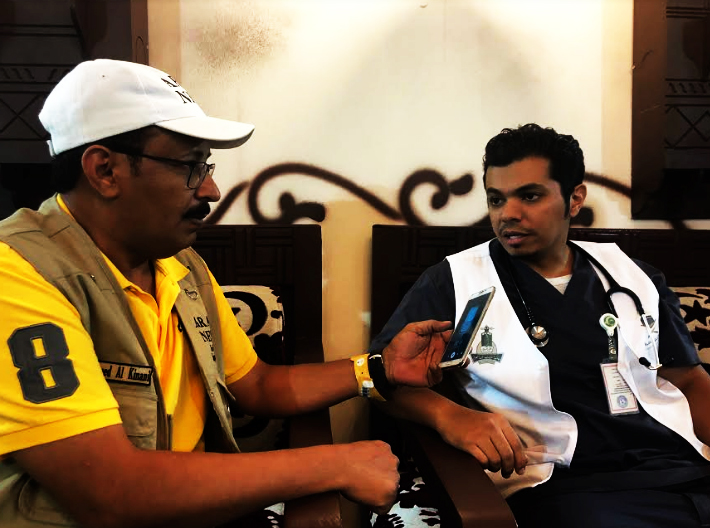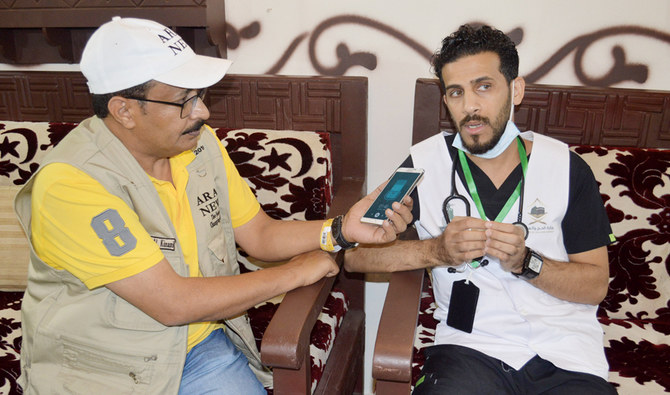MINA: It is normal for workers to take breaks to get some rest, but it is unusual when a worker cuts their vacation short to go back to work of their own volition.
Two Saudi consultants did just that in order to provide medical services at Makkah’s holy sites.
Dr. Ahmed Al-Katheeri, a consultant at the Jeddah-based King Abdul Aziz University Hospital, and Dr. Alaa Al-Hazmi, a consultant at the Saudi Health Ministry, have voluntarily decided to work during their leave for an unpaid humanitarian mission.
“Lending a hand to pilgrims is a duty that all Muslims have to do when they can,” Al-Katheeri said. “I was glad to participate for the first time and represent my university in serving pilgrims. We are hoping in future to have a field hospital here so that we can contribute in this noble mission of providing pilgrims with the best possible medical services.

Dr. Alaa Al-Hazmi, family medicine consultant at the health ministry. (AN photo)
“We only came to help. There are many medical staff members at the service of pilgrims, but that does not mean volunteers cannot participate. The biggest motive that made us decide to cut our break times was to see the smile on the faces of the physically ill pilgrims,” he added.
Al-Katheeri urged his fellow doctors to volunteer in future Hajj seasons.
Al-Hazmi said that he had participated in the Hajj four times before, but that this was his first time volunteering.
“Cooperation between different Hajj bodies has now improved and this has also paved the way for anyone to volunteer in a more organized and systematic way,” Al-Hazmi said.
“Volunteers can easily register through the "Be an Assistant" program. The Health Ministry has provided huge numbers of medical staff, but you are talking about millions of pilgrims performing their rituals in a small area. Many of them are old and physically ill. These people need as many medical staff as possible. Moreover, it is an honor to serve pilgrims,” he added.
“Money is not everything. The pleasure we feel when volunteering for our work cannot be described.”




























